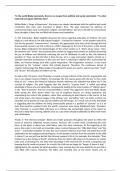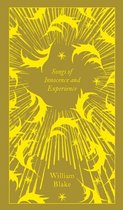Essay
A* A-level English Literature Essay Social and Political Protest Writing in Blake's Poetry
- Institution
- AQA
This is a full mark A* English literature A-level essay. It explores how William Blake navigates social and political constraints in his poetry, specifically looking at his 'Songs of Experience'
[Show more]




